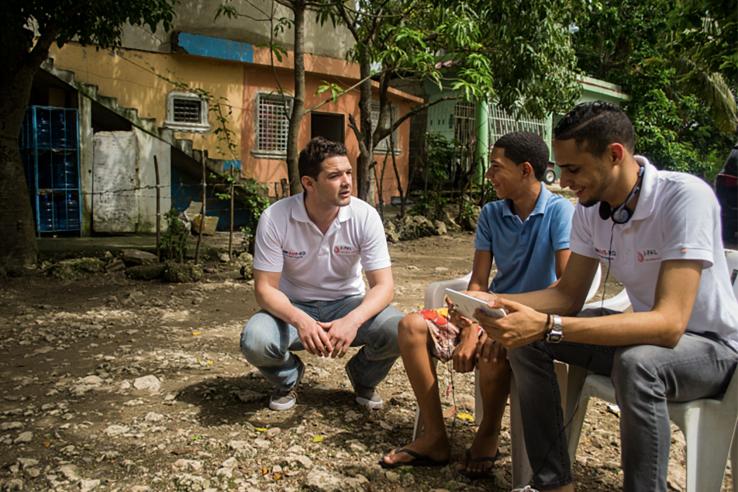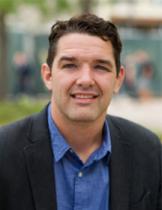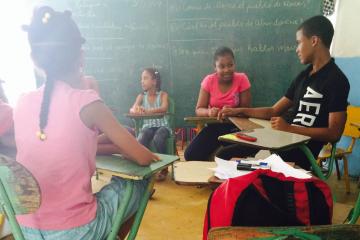Affiliate spotlight: Christopher Neilson on using technology to close information gaps

Christopher Neilson is an assistant professor of economics and public affairs at Princeton University. He has been a J-PAL affiliate since 2017.
How did you become interested in development economics?
I moved around a lot when I was growing up; I spent time in Chile, Brazil, and the United States. These experiences exposed me to contrasts in development—both across countries, and as well as within countries—and these disparities left a mark. The consequences of ineffective economic policy were very visible. For example, when I was 9 or 10, I remember negotiating my allowance to be in US dollars when my family briefly lived in Brazil during a period of hyperinflation.
Pursuing my undergraduate economics degree at the University of Chile was very important in driving me to think critically about how economics can help a country grow and develop. The professors were very good at motivating students and rallying them to the greater cause of using economics to improve the lives of others.
On day one of my introductory economics class, the professor asked a provocative question to get students worked up: "Why are you here? Do you want to study economics to be the CEO of Coca-Cola, make a lot of money, and maximize the profits of the shareholders? Or do you want to study economics to be the Minister of Finance, manage the economy, and maximize the welfare of all?"
I remember the brightest and most interesting students went into economics, and the peer effects generated an electric environment. At the time, it seemed that economics had all the answers and it was the key to unlock growth, alleviate poverty, and basically cure many other ills of the world... how could anyone study anything else?
What is one current research project that you're particularly excited about?
Recently I have been particularly interested in understanding how people make choices when they don't know all the options, or the characteristics of these options, and how new innovations in artificial intelligence (AI) can help people make choices.
Right now, I am working on a project in which a chatbot interacts with college applicants to assist them with their applications and search process. The bot learns over time how to best engage with each student, taking into account the individual’s information collected through the interaction, as well as what it has learned regarding what keeps students engaged in other interactions.
I think this will be a great learning experience and am excited to explore the crossover between new technologies and how to help people make better choices regarding their human capital accumulation.
What is your dream evaluation? (It doesn't have to be feasible!)
I've been a visiting researcher at Microsoft Research this year and have been very impressed by the rapid pace of innovation in AI. I'd like to see the impact of an AI assistant that provided the same information and nudges that a very involved “helicopter” parent would provide from birth onward (or before birth!). It would be a developed version of AI with great natural language processing, like future generations of Alexa, Cortana, or Siri, for example.
In my dream evaluation, I could determine what happens when all children are read to by Alexa/Cortana/Siri from day one. Everyone with an AI in their home would receive reminders about why investing in human capital is important, and suggestions for what to study, when to study, and what to focus on.
Assistants fix my schedule and prefill my credit card info today, but what if AI assistants made sure no one had any trouble filling out a FAFSA? What if someone had an assistant that nudged him or her to practice the SAT years in advance? You can see where I am going with this dream intervention and evaluation.
I’d be interested to see how this plays out in general equilibrium, what leveling the information playing field would do to the distribution of wages, the pace of innovation, the perception of justice and the functioning of democracy, etc.
So since this is my dream evaluation, we would also have lots of markets/worlds to randomize over and trace out how it all plays out at varying degrees of technological penetration—maybe only rich people can afford the AI assistants, and things get worse!
This dream evaluation seems particularly outlandish, but I think in the future, we will see AI assistants helping humans make better decisions in all kinds of situations. I'd like to think this will get done in a way that will close some gaps between rich and poor. I guess I am hopeful that leveling the information playing field would make society more meritocratic and generate more social mobility, things I personally value.
What is a memorable story from visiting project sites?
I think going into the field is always very insightful and it affects my views on what is going on quite a bit. Getting information from lots of different local sources is important. Just talking to people on the ground is sometimes very useful, especially when your contacts are local individuals who are invaluable resources with a lot of knowledge.
One of the most memorable examples of the importance of field work involved a pilot survey for middle school children in rural Peru. We tested the survey out on second grade students in urban areas with no major problems.
But when we went out into the field, in some rural areas, students in sixth and seventh grade had a lot of trouble reading the questions. Seeing this was really surprising. In ongoing work, I have tried to use my own apps to survey children so they can have the questions read to them and answer interactive prompts.
Do you have any advice for early career researchers?
First, I myself would like some advice! However, if I have to venture something from my experience so far, I would say early career researchers doing applied work should invest in getting data and developing relationships with policymakers.
This is important to be able to understand what problems exist and to see things through the policymakers’ eyes, but with an economic framework to guide you. I think these connections open up lots of research opportunities and collaborations that will ensure your work has relevance for policy. This has proved to be one of the things I value in what I have done in my short career so far.
What are you reading right now (related or unrelated to economics)?
To be honest, I can tell you what book I am listening to! “What To Do When Machines Do Everything: How To Get Ahead in a World of AI, Algorithms, Bots, and Big Data" by Malcolm Frank, Paul Roehrig, and Ben Pring.
I actually sent this out to all my students and RAs. I think it’s quite useful for thinking about research ideas and implementing new developments in tech.
Where do you see opportunities for interdisciplinary work to advance research related to your areas of interest?
I think computer science, and more so applications of data science, will be tightly integrated with work in economics and development. New tech for data collection and manipulation is allowing researchers to harness administrative data sources in developing countries that will unlock a huge potential for evidence-based policymaking and will be the starting point for many projects.
There are limits, of course, but even in the most impoverished areas, data is being collected by satellites, cell phones, utility meters, etc. We are living in exciting times to be an empirical economist.

